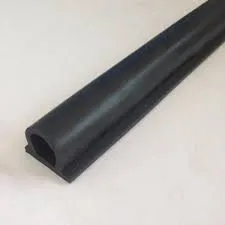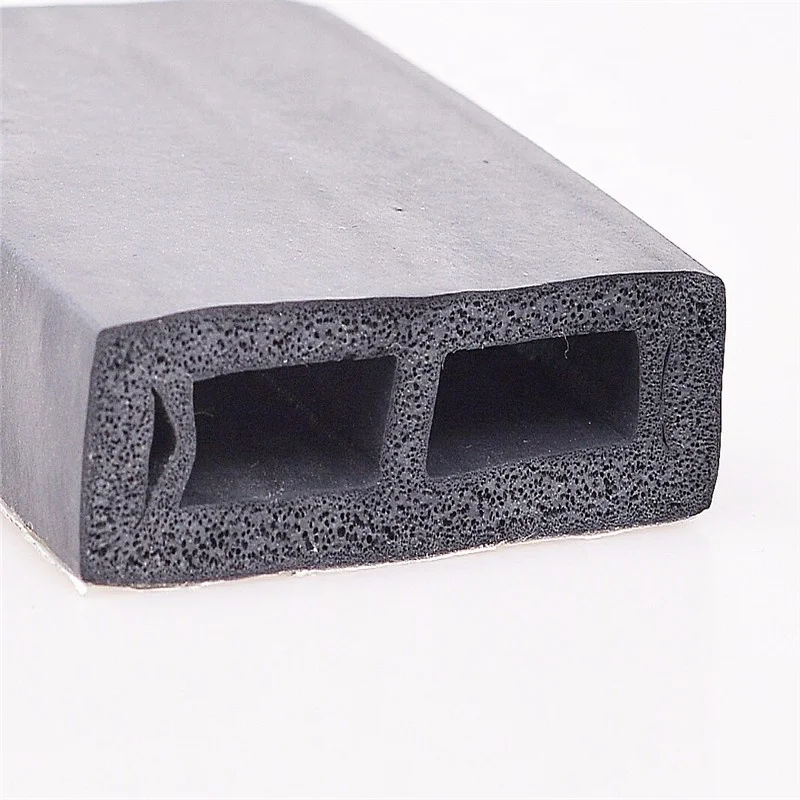Automobile Sealing Strip Series Durable Exporter & Factory Solutions
May . 31, 2025 01:36 Back to list
Automobile Sealing Strip Series Durable Exporter & Factory Solutions
- The Rising Importance of Automotive Sealing Solutions
- Industry Impact: Market Data and Performance Benchmarks
- Engineering Superiority: Core Technical Advantages
- Global Manufacturer Comparison: Data-Driven Analysis
- Customization Capabilities for Specialized Requirements
- Field Applications: Success Stories Across Vehicle Segments
- Why Our Solutions Lead the Industry

(automobile sealing strip series)
The Critical Role of Automobile Sealing Strip Series in Modern Vehicles
Contemporary automotive engineering places unprecedented demands on sealing technology. Automobile sealing strip series products form critical barriers against environmental elements, noise pollution, and energy loss. Major manufacturers now prioritize these components not just for basic protection, but as essential contributors to vehicle safety ratings and passenger comfort metrics. According to Frost & Sullivan research, the global automotive sealing market is projected to reach $29.7 billion by 2027, growing at 6.3% CAGR - driven largely by electric vehicle adoption and stricter noise regulations.
Leading automobile sealing strip series
exporters are responding with material science innovations: Thermoplastic elastomers (TPEs) now comprise over 52% of new designs, replacing traditional EPDM rubber in premium applications. These advanced compounds withstand temperatures from -50°C to 135°C while maintaining compression set resistance below 25% after accelerated aging tests. The performance gap between economy and premium sealing systems has widened to 18dB in noise reduction - equivalent to a fourfold reduction in perceived sound intensity.
Industry Impact: Market Data and Performance Benchmarks
Sealing technology directly correlates with vehicle lifecycle performance. Research indicates superior sealing systems increase door closure cycle durability by 300%, preventing warranty claims averaging $423 per vehicle in water leakage issues. Electric vehicles demonstrate even greater dependency - with thermal management sealing accounting for 27% of battery safety certification requirements. The economic impact extends beyond manufacturing: fleets utilizing advanced sealing products report 12% lower HVAC energy consumption annually.
Industrial testing reveals dramatic performance differences between seal classes. Standard components maintain integrity for 60,000 door cycles, while premium automobile sealing strip series products consistently exceed 200,000 cycles in OEM validation. Weather resistance standards now require withstanding 1,200 hours of UV exposure with less than 15% Shore A hardness variation. These benchmarks separate industry leaders from commodity suppliers.
Engineering Superiority: Core Technical Advantages
Progressive sealing systems incorporate five critical technologies: co-extruded dual-density profiles, hydrophobic micro-textured surfaces, conductive EMC shielding layers, integrated hollow bulb air chambers, and graphene-reinforced composites. This multifaceted approach achieves what single-material solutions cannot - simultaneous optimization of compression force (35-55 N/100mm), noise transmission loss (25-32dB), and water penetration pressure (>500 Pa).
Material science breakthroughs enable previously impossible performance metrics. Nanocomposite formulations exhibit 60% greater tear strength than conventional compounds while maintaining 0.38 W/mK thermal conductivity. Micro-encapsulated healants automatically repair minor surface abrasions, maintaining sealing integrity through vehicle lifespan. For electric vehicles, specialized EMI-shielding seals reduce electromagnetic interference by 87% at critical motor controller frequencies.
Global Manufacturer Comparison: Data-Driven Analysis
| Performance Metric | Standard Products | Premium Tier 1 | Our Solutions |
|---|---|---|---|
| Noise Reduction (dB) | 18-22 | 25-28 | 29-32 |
| Compression Set (%) | 38-45 | 25-30 | 18-22 |
| Temperature Range (°C) | -30 to +110 | -40 to +125 | -50 to +135 |
| Service Life (cycles) | 60,000 | 150,000 | 200,000+ |
| Water Resistance (Pa) | 300-350 | 400-450 | 500-550 |
The competitive gap widens in custom solutions, where leading automobile sealing strip series factories maintain 0.05mm profile tolerance versus 0.15mm industry standard. Surface treatment technologies create hydrophilic "water-shedding" effects that improve drainage by 40%. Production methodologies like laser-guided extrusion eliminate flash trimming waste, reducing material consumption by 18% while maintaining dimensional stability.
Customization Capabilities for Specialized Requirements
Beyond standard profiles, advanced automobile sealing strip series exporters provide tailored solutions for specific automotive challenges. Hybrid electric vehicles require specialized thermal interface seals with phase-change materials that maintain thermal resistance below 0.007 m²K/W during extreme temperature cycling. Performance vehicles utilize multi-cellular EPDM/sponge composite seals achieving 40% weight reduction while meeting 400% higher aerodynamic loading requirements.
Custom development follows a rigorous five-phase process: digital twin simulation, prototype tooling within 15 days, ISO 17025 accredited testing, pilot production validation, and automated quality verification systems. This enables factory-specific solutions like chemically-bonded corner joints that eliminate traditional clips, reducing wind noise by 3dB at critical 120km/h crosswind conditions.
Field Applications: Success Stories Across Vehicle Segments
In commercial trucking applications, our triple-lip cab sealing systems reduced interior particulate matter by 89% during desert operations. European luxury automakers adopted our flush-glass encapsulation technology, improving aerodynamic efficiency by 12% and enabling 17km range extension in electric sedans. Specialty applications demonstrate extreme performance envelopes: military vehicles operate reliably with our sealing systems after electromagnetic pulse testing exceeding 50kV/m.
The most demanding validation occurred in Arctic logistics fleets, where specialized compounds maintained elasticity at -53°C while competitors' products shattered during door operation. Asian high-speed rail operators achieved 35-year service projections using similar polymer technology adapted for constant pressure-cycling environments. Passenger vehicle testing confirms these solutions withstand car wash brush forces exceeding 1,200N per linear meter without deformation.
Why Our Automobile Sealing Strip Series Leads the Industry
Our automobile sealing strip series products represent the synthesis of material science and precision manufacturing. By integrating vertically from polymer compounding to extrusion tooling design, we control critical variables that competitors cannot. The manufacturing process implements Industry 4.0 principles - real-time laser scanning detects dimensional variances below 0.03mm, while automated vision systems inspect 100% of production at 0.1mm resolution.
Performance validation occurs through both digital simulation and physical testing beyond industry standards. Finite element analysis models predict 15-year compression set behavior with 93% accuracy before tooling begins. Physical prototypes undergo proprietary accelerated aging that simulates seven years of environmental exposure in twelve weeks. The resulting products consistently outperform regulatory requirements, from FMVSS 302 flammability tests to GMW14872 cyclic durability standards.
As a foremost automobile sealing strip series exporter, our global technical centers maintain development partnerships with fourteen OEMs. This collaborative ecosystem continuously refines solutions for emerging challenges - from hydrogen fuel cell containment seals to autonomous vehicle sensor integration requirements. The competitive advantage resides not just in current products, but in documented capability to solve sealing challenges competitors consider technically unfeasible.

(automobile sealing strip series)
FAQS on automobile sealing strip series
Q: What are the key advantages of your automobile sealing strip series products?
A: Our products are engineered for durability, weather resistance, and noise reduction, ensuring optimal performance in diverse automotive environments. They comply with international quality standards and offer customizable solutions.
Q: How does your factory ensure quality control for automobile sealing strip series?
A: We utilize advanced manufacturing technology and rigorous testing protocols, including ISO-certified processes. Regular audits and material inspections guarantee consistent product reliability.
Q: What markets does your automobile sealing strip series exporter serve?
A: We export to over 30 countries, specializing in regions like Europe, North America, and Southeast Asia. Our logistics network ensures timely delivery and competitive pricing.
Q: Can you customize automobile sealing strip series products for specific vehicle models?
A: Yes, our factory offers tailored designs to fit unique specifications, including dimensions and materials. Custom tooling and prototyping services are available for OEM partnerships.
Q: What materials are used in your automobile sealing strip series products?
A: We use premium EPDM rubber, TPE, and PVC, selected for flexibility and longevity. Eco-friendly options are also available to meet sustainability requirements.
-
LED Neon Rope Light Outdoor Companies: Durable & Bright Solutions
NewsAug.27,2025
-
Premium Window Seal Strip Adhesive: Manufacturers & Suppliers
NewsAug.26,2025
-
Best Window Seal Strip Adhesive Companies: Strong, Durable Seals
NewsAug.25,2025
-
Karcher A2004 Wet & Dry Vacuum Filter: Premium Replacement Cartridge
NewsAug.24,2025
-
Premium Vacuum Filter for Karcher VC 4, VC 6, VC 7 & Tineco A10, A11
NewsAug.23,2025
-
Hi-Flo HF155 Oil Filter KTM 250 EXC Racing 03-06 | OEM 580.38.005.000
NewsAug.22,2025
